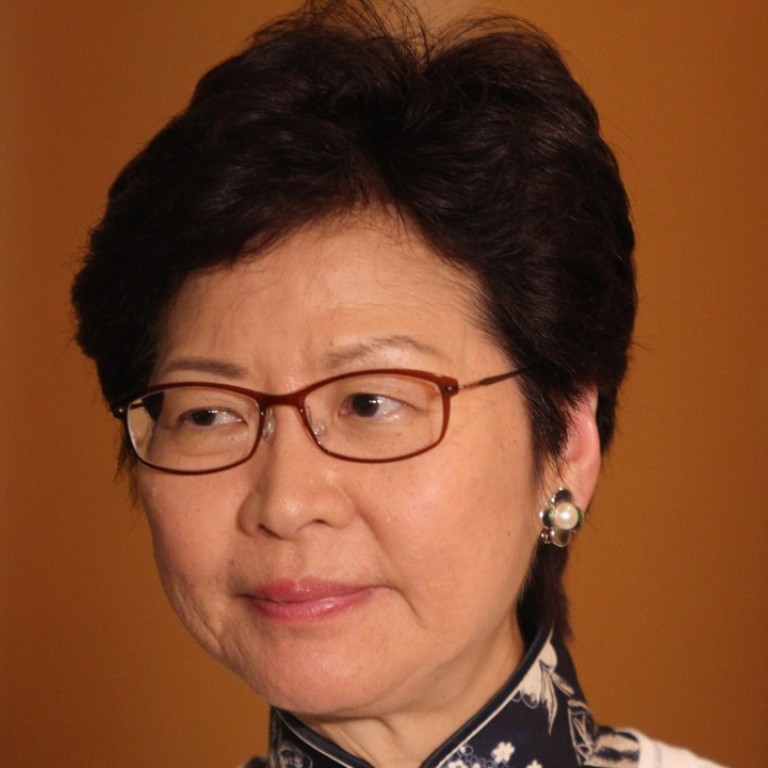
Lam rejects idea to limit power of China’s officers at joint checkpoint in Hong Kong, or defer launch for consultation
Meanwhile a Basic Law Committee member cites national security as reason to fully empower mainland authorities in zone
She also said she would not defer the launch of the project to allow time for more consultations.
Lam made the remarks as she concluded her four-day visit to Beijing, during which she met officials from China Railway. According to Lam, the company would be involved in setting up operational details with Hong Kong for the HK$84.4 billion rail link to Guangzhou.
Hong Kong leader inspects high-speed train and stresses need for mainland Chinese officials at city terminus
Last month the government announced the joint checkpoint plan in which national laws would be applied in a section of the West Kowloon terminus that would be leased to the mainland. The rail link is scheduled to open in the third quarter of next year.
Under the Basic Law, Hong Kong’s mini-constitution, the city cannot lease land in such a manner, so it plans to seek permission from the National People’s Congress Standing Committee, China’s top lawmaking body.
Despite fears from critics that the plan would set a bad precedent and compromise the “one country, two systems” principle, Lam dismissed ideas to limit the power of mainland officers to enforce laws only related to immigration, customs and quarantine in the terminus.
Lam also ruled out holding up the work to make way for more public consultation, but added that the government was willing to soothe concerns over the “co-location” arrangement.
“The issue has been discussed by the governments of both sides for many years. And it is not something that Hong Kong can decide on its own because it involves the mainland’s enforcement of the law,” she said.
She added that it would be “everyone’s loss” if the rail link could not be launched after completion.

In Hong Kong, Maria Tam Wai-chu, a member of the Basic Law Committee under the National People’s Congress Standing Committee, said that due to national security, mainland officers should be allowed to exercise their powers fully in their section of the terminus.
Tam, speaking at a seminar, suggested that if there was a war between China and India, the leased area might become a safety loophole if enemies entered the zone and mainland officers could only enforce partial laws.
Meanwhile, Civic Party chairman Alan Leong Kah-kit challenged a newly set up pro-establishment legal group to a public debate on the joint checkpoint proposal.
In response, pro-establishment lawmaker Junius Ho Kwan-yiu told the Post that he welcomed any debate.
The legal group is one of the three concern groups set up over the issue as both political camps in the city mobilise campaigns to gather support for their divisive stances on the matter.


